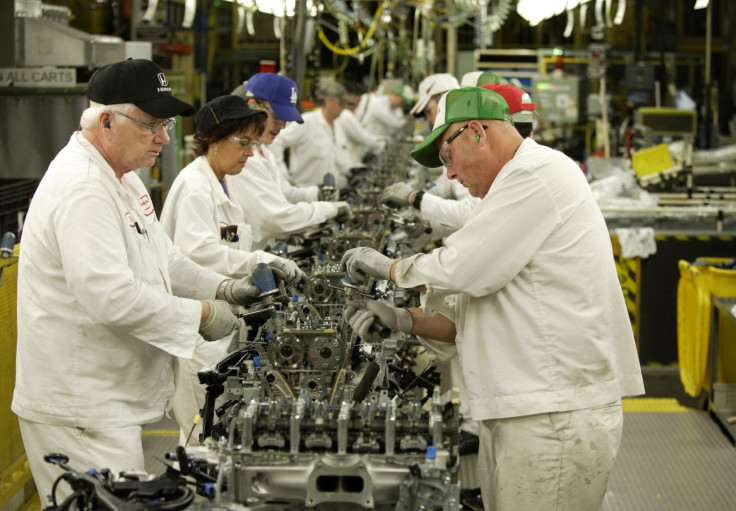US Manufacturing PMI Rises To 50.9 In June As New Orders, Production and Inventories Grow Yet Employment Contracts

The U.S. manufacturing sector resumed growing in June after one month of contracting, according to a new report released Monday.
The Institute for Supply Management (ISM) says that business conditions are improving but the growth pace is slow. The group's Purchasing Managers Index (PMI) increased by 1.9 percent in June to 50.9 percent, registering higher that May's reading of 49 percent. That rise above the 50 mark indicates that the manufacturing sector expanded for the fifth time in the first six months of 2013, while the overall economy grew for the 49th consecutive month.
June's 50.9 percent level is higher than what analysts were expecting. The consensus among analysts polled by Reuters and also by Briefing.com expected, on average, that June's ISM would be 50.5 following May's level of 49. Above 50 indicates industry expansion, below indicates contraction.
The positive activity was bolstered by new orders, which increased by 3.1 percentage points to 51.9 percent, and also by the Production Index, which increased by 4.8 points to 53.4 percent. However, the 48.7 employment reading, down 1.4 percent since May's 50.1 percent reading, matched a level not reached since the recession.
"Manufacturing employment contracted for the first time since September 2009, when the index registered 47.8 percent," Bradley J. Holcomb, ISM chair, said.
The Prices Index increased by 3 points to 52.5 percent, indicating that overall raw materials prices increased from May."
Purchasing managers are considered to have current and relevant insight into a company's view of the economy. The report, based on a survey of about 400 purchasing managers in the manufacturing industry, measures business conditions such as employment, production, new orders, prices, supplier deliveries and inventories. It is a leading indicator of economic health, as businesses react quickly to market conditions.
"The improvement appears to be due to the slight pick-up in global demand evident in some of the international PMIs," said Paul Dales, senior U.S. economist with Capital Economics.
Dales said that this report shows that the U.S. economy has passed the first of what he calls this week's two "QE3 tapering tests," with the second being the upcoming employment report from the Labor Department.
"On the face of it, that's consistent with declines in manufacturing payrolls of over 50,000 a month," said Dales, adding that June's rebound will keep the Fed on track to start tapering the third round of quantitative easing at September's Federal Open Market Committee meeting.
© Copyright IBTimes 2024. All rights reserved.






















